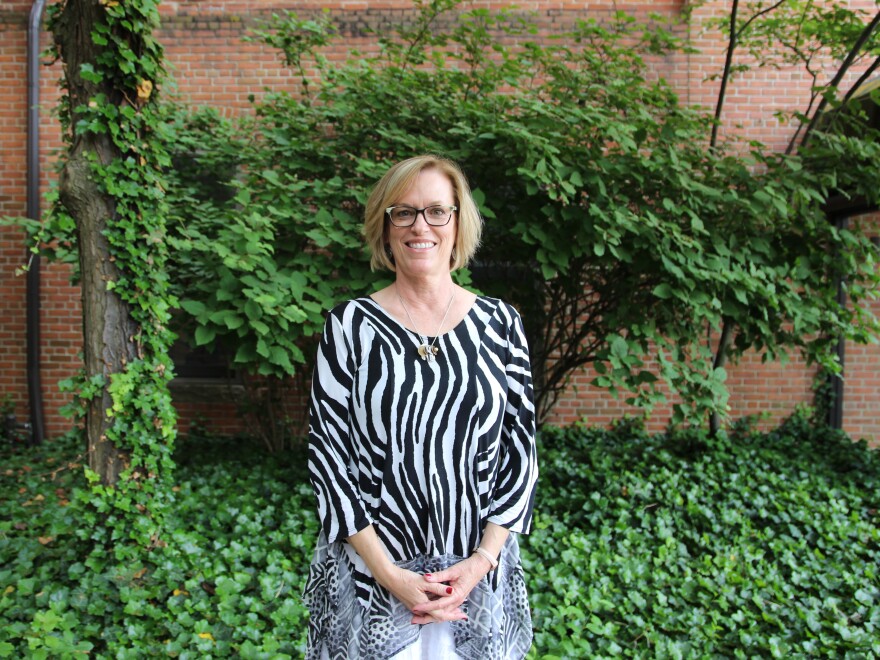A diagnosis of a life-threatening illness is an enormous shock wave to any family.
But there are extra challenges involved when that diagnosis happens for a teen or young adult. While their friends are getting ready for the prom or for college, they will be going through treatment and having tough conversations with family and doctors.

Cynthia Bell is an assistant professor and research scientist at the Wayne State University School of Nursing, and has studied end-of-life conversations with teens and young adults.
Caitlin Sall is a nursing student at Boise State University from the Grand Rapids area. She was diagnosed with cancer on her very first day of high school, and has undergone myriad treatments and surgeries since then.
Bell has developed a tool that helps young people, like Sall, who are being treated for a potentially terminal illness, answer important, but often difficult, questions. Bell talked about the career experiences that prompted her to specialize in this field, and Sall shared what it's been like to manage her illness while making plans for the future.
Read some highlights from their conversation below, which have been edited for clarity.
Bell on how to determine if a patient is ready to talk about their condition
“The tool that we developed is based on the construct of readiness, so it has three domains: awareness, acceptance, and willingness. So we find out how aware they are of their condition, how emotionally accepting they are, and what they’re willing to engage in as far as discussions go. But overwhelmingly, I have found that they are willing to talk and are thankful, generally, that someone is asking the questions.”
Sall on how talking to family helped her process her diagnosis
“I didn’t necessarily need somebody to start the conversation, for me, at least. I just needed somebody to listen. It wasn’t necessarily that I wanted them to reply or try to change my mind or anything of the sort. I just kind of wanted them to listen to my fears and hear me out at where I was in that moment. Just being able to say it out loud was kind of enough for me to get through it.”
Bell’s advice for the loved ones of young people who have been diagnosed with a life-threatening illness
“I think just asking the questions, that’s the biggest thing. I mean you have to ask, and then you have to be willing to hear. What I’ve found with adolescents is that when they move into that open awareness with ‘Oh my goodness, I could die from this,’ they don’t want to stay there. They might want to be there for a moment, or for a time to process things, but they need to go out of that and you need to let them go out of that, and you need to let them be in those places where they have hopes and dreams and want to accomplish goals.”
This post was written by Stateside production assistant Isabella Isaacs-Thomas.
(Subscribe to Stateside on iTunes, Google Play, or with this RSS link)


